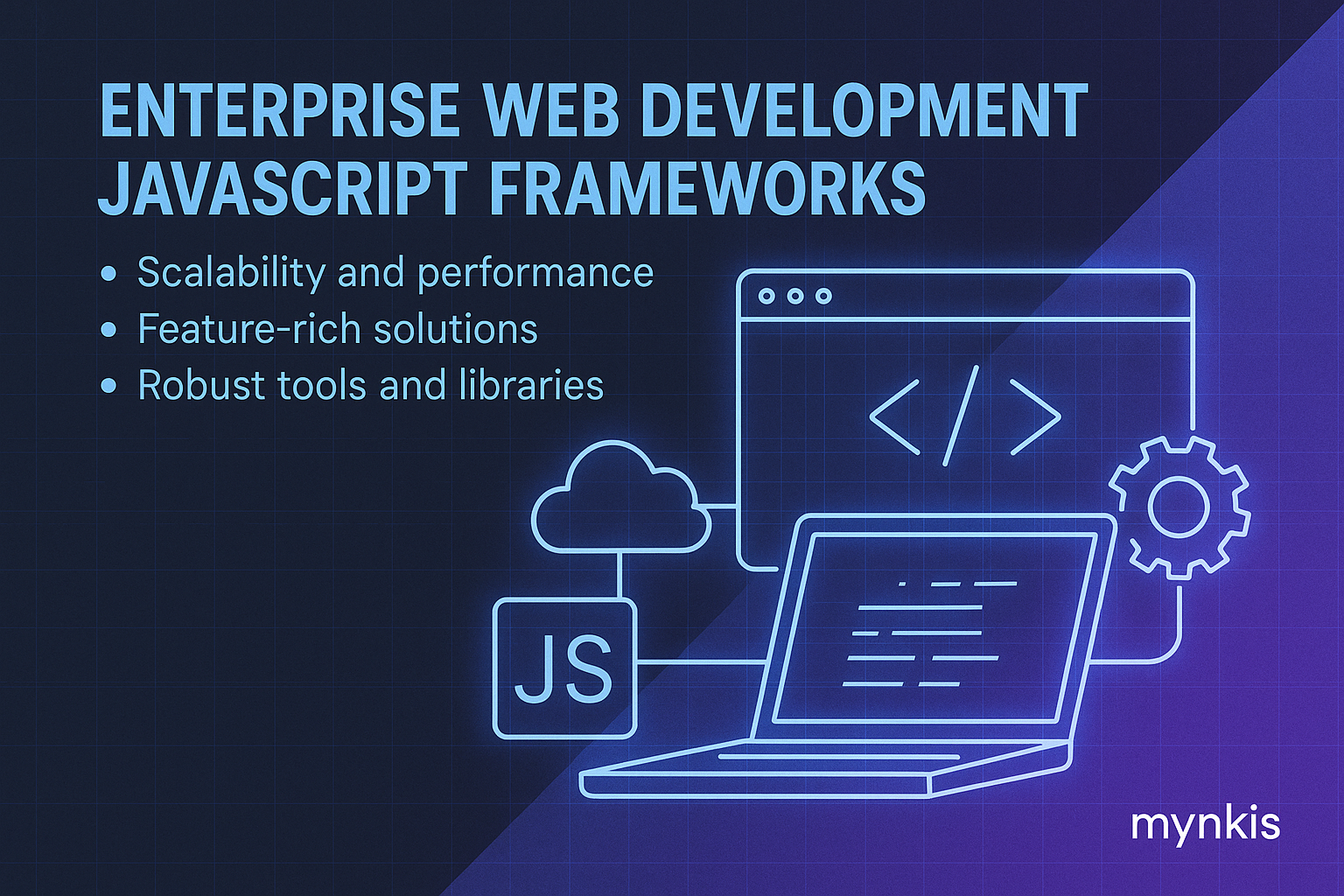Schedule a Demo
JavaScript frameworks aren't just a trend; they're essential tools for building complex, interactive web applications. From my years assisting enterprise clients with their digital solutions, I've noticed an unmistakable shift towards frameworks like React, Angular, and Vue.js. These tools offer not only enhanced user experience but also streamline development, making them ideal for the fast-paced demands of business operations.
When discussing enterprise software, React frequently emerges as the go-to choice. This framework, crafted by Meta, excels in managing the state of an application, making it a favorite for those seeking high-performance and dynamic UI components. In my experience working with operations managers, leveraging React meant crafting interfaces that mirrored the efficiency and responsiveness of their business systems, empowering them to streamline their processes and engage their employees better.
Angular is a powerhouse with its ability to handle extensive, complex applications. It is often cited by CIOs and CTOs in tech-heavy organizations as the framework of choice due to its full-featured capabilities. With Angular, I've seen the development of intricate customer portals and internal tools transform from laborious tasks into manageable, predictable projects, particularly appreciated in environments where every second and dollar counts.
Vue.js shines in its flexibility, allowing it to integrate smoothly with existing projects or serve as the foundation for new builds. Its gentle learning curve means development teams can quickly become proficient, accelerating project timelines. I recall a collaboration where we introduced Vue.js to an established enterprise client; the existing staff was able to adapt rapidly, resulting in expedited project rollouts and impressive stakeholder buy-in.
High-performance websites and tools are non-negotiable for large organizations, so selecting the right framework based on your performance needs is crucial. React's virtual DOM often provides a notable performance edge. However, performance isn't solely about speed; it encompasses responsiveness, scalability, and efficiency. I recommend utilizing tools like Lighthouse or WebPageTest to measure these metrics, informing which framework might best suit your enterprise's unique demands.
The decision of which JavaScript framework to employ should align with your business objectives and project requirements. React is typically recommended for applications with complex UI needs, Angular for comprehensive enterprise applications, and Vue.js for its incremental adoption and development simplicity. Evaluating these against your strategic goals, existing technology stack, and team's expertise ensures you're setting your project up for success.
The framework you choose will significantly impact your development team's workflow and efficiency. From team discussions, I've gathered that frameworks like React, while initially challenging, ultimately lead to faster iterations and component reuse, which enterprises crave. Conversely, Angular's steep learning curve sometimes hinders quick project starts but offers a wealth of built-in functionalities that can accelerate projects over time. Knowing your team's strengths and willingness to adapt can guide your choice effectively.
Search engine optimization remains a key concern for enterprise-level websites. Frameworks like React can present SEO challenges due to their client-side rendering. However, solutions exist. Server-side rendering with React, for example, can improve SEO performance. For Angular or Vue.js, pre-rendering might be the way to go. As an agency focused on delivering results, we always prioritize these SEO strategies to ensure your custom software solutions contribute to your brand's visibility.
Accessibility in web development is not just about meeting legal requirements; it's about inclusivity and enhancing user experience. Many frameworks have evolved to support and simplify accessible web development. React and Vue.js have strong ecosystems around accessibility; Angular includes it in its core tenets. In practice, frameworks like these can aid in creating business tools and websites that meet the needs of all users, reflecting positively on your organization's culture and commitment to diversity.
One critical aspect for enterprises adopting JavaScript frameworks is the integration with existing systems and databases. This process often necessitates API development or using RESTful services. In one engagement, we used React to build a customer portal that seamlessly interfaced with a Salesforce backend, showcasing how versatile these frameworks can be in creating cohesive business solutions.
Looking to the future, JavaScript frameworks are set to evolve in tandem with web standards. Trends such as server-side rendering becoming standard and the rise of progressive web apps suggest a bright future for enterprise solutions. It's also worth considering the growing influence of emerging frameworks like Svelte, which, while not yet mainstream, could offer unique solutions for niche enterprise needs.
When discussing custom software development, security cannot be an afterthought, especially within large organizations with strict compliance requirements. JavaScript frameworks, while powerful, require strategic management of security risks. Building applications with Angular's typed, component-based design might aid in crafting secure interfaces. However, best practices for security with all these frameworks involve consistent updates, rigorous testing, and following data protection laws like GDPR or HIPAA as needed.
For enterprise-level clients, investing in high-quality software development is crucial but can feel cost-prohibitive. JavaScript frameworks such as React offer lower long-term costs due to easier maintenance and better talent availability, based on available research, individual results may vary. Keeping in mind the cost against the overall value to your business operations helps determine which framework justifies your investment.
Incorporating JavaScript frameworks into your tech strategy implies more than just a project's success; it's about building a sustainable technological roadmap. This means regularly reviewing and updating technologies in use, considering integrations and advancements like AI enhancements or machine learning where appropriate, and ensuring your tools evolve alongside your enterprise's growth.
Choosing and implementing a JavaScript framework involves not only the technology itself but also empowering your team to embrace it. Offering continuous learning opportunities, framework-specific training, and supporting communities of practice within your company can foster innovation and maximize the technology's impact. I've seen companies build in-house expertise on frameworks like Vue.js, driving internal development projects and enhancing employee engagement.
